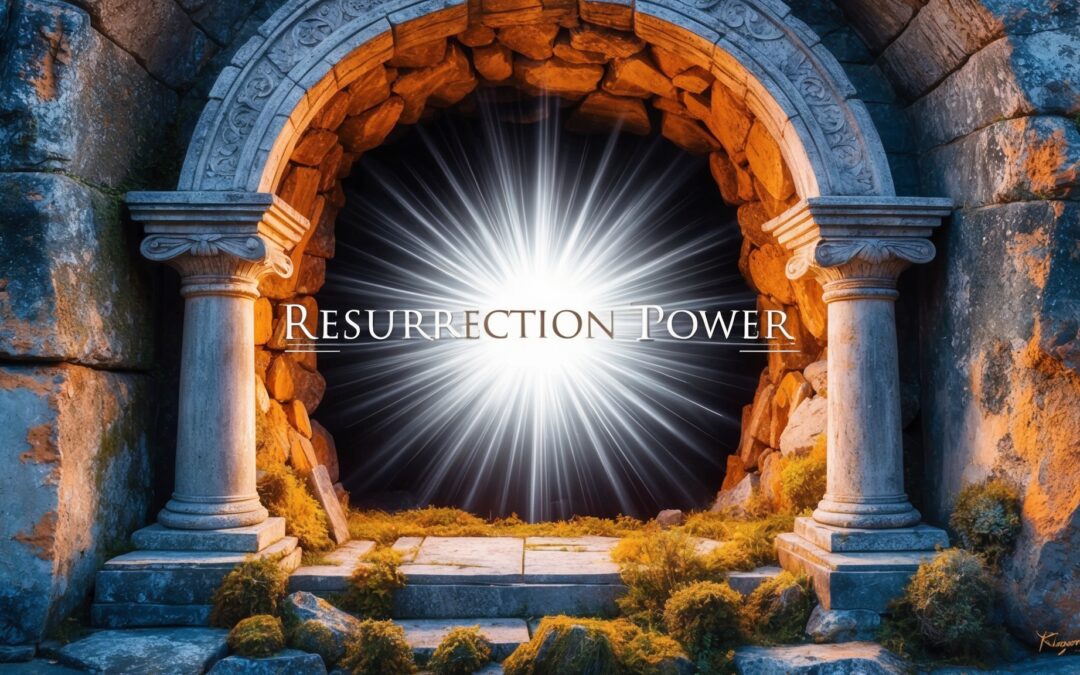But if the Spirit of him that raised up Jesus from the dead dwell in you, he that raised up Christ from the dead shall also quicken your mortal bodies by his Spirit that dwelleth in you.”
(Romans 8:11)
One of the greatest promises in all of Scripture is found in our text here in Romans 8. For God affirms that if indeed his Spirit lives in our heart, even though our earthly body dies, this same Spirit that raised Christ from the dead will also raise our dead body to eternal life!
Evidence of our salvation is the presence of God’s Spirit in us (Rom. 8:23), and that same indwelling Spirit guarantees the resurrection of our decaying body to a new spiritual body like that of Christ’s when he returns (Rom. 6:5). Even as our mortal body lies in the dust of the earth (Matt. 22:31-32) we have assurance that “all that are in the grave shall come forth, they that have done good will come forth to the resurrection of life,” (John 5:28-29). And “I will raise him up at the last day,” (John 6:39-40, 44, 54).
Ralph Brownrig said, “In this context and passage of Scripture, the Apostle explains the state and condition of a Christian. And having in the former part of this Epistle settled the truth of our justification by the death of Christ, now he lays down grounds of comfort against those infirmities and imperfections that Christians find and feel themselves to be subject to.”[1]
Paul describes these infirmities in Romans 7:18, “I know that in me, that is, in my flesh, there dwells no good thing.” Consequently, he mourns, “O wretched man that I am, who shall deliver me from the body of this death!” (7:24). Then faith responds, “I thank God, through Jesus Christ my Lord,” (7:25). He looks to Christ, his sovereign Antidote, for his redemptive cure.
And though sin deserves no less than the curse of God and eternal damnation, we take consolation in his promise that “there is therefore now no condemnation to them which are in Christ Jesus, who walk not after the flesh but after the Spirit,” (Rom. 8:1). And though we commonly say that God is not the God of the dead but of the living, in this context God is also the God of the dead! “For to this end Christ both died, and rose, and revived, that he might be Lord both of the dead and the living,” (Rom. 14:9).
The death of a saint (one of Christ’s bodily members) is limited to that which is physical and temporary in light of the Spirit’s power to effect our resurrection (the saints in heaven are awaiting the day of the resurrection of their bodies to be united, finally, to their spirits). And the surety for this hope lies in the truth that God raised Jesus from the dead, that he now reigns as King over death and hell and the grave, and that he cannot fail in his promise to raise us up to eternal life with a body like that of Christ’s which is incorruptible, everlasting, and perfectly glorious!
Contemplations:
- What a comforting text is this found in Romans 8:10-11, for it is our blessed assurance and evidence of a Christian’s certain resurrection.
- Scripture provides such a glorious condition on which this resurrection is promised and expected, for if the Spirit of him that raised up Jesus from the dead dwells in me, then I have all assurance that I will be raised.
- Christ being raised from the dead by his Spirit is the cause and efficient of our resurrection. This same Spirit who raised up Christ from the dead is the acting and performing force found in this, “He shall quicken your mortal bodies.”
- My comforting assurances as a Christian include no condemnation for sin (Rom. 8:1), no dominion of sin over me (8:35-39), and no power of death because of sin, for Christ’s resurrection abolished the power of sin and death once and for all (8:11).
Further References for Rom. 8:11:
1 Thess. 4:14, 16; Dan. 12:2; Isa. 26:19; 1 Cor. 15:17.
[1] Ralph Brownrig, Twenty Five Sermons (London: Tho. Roycroft, 1664), 273.


